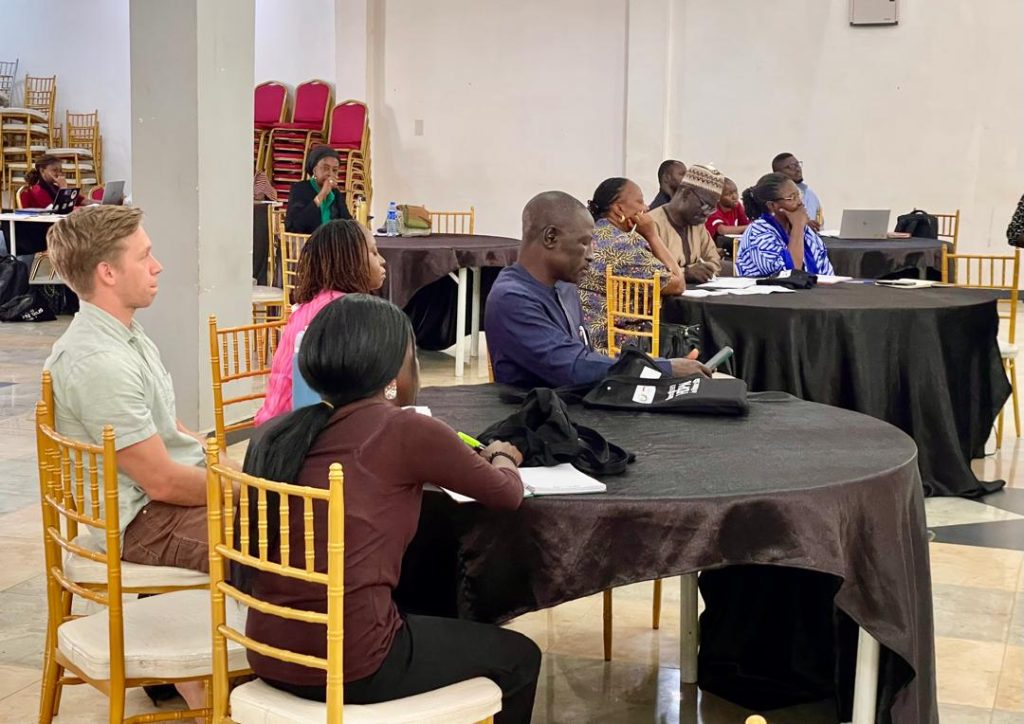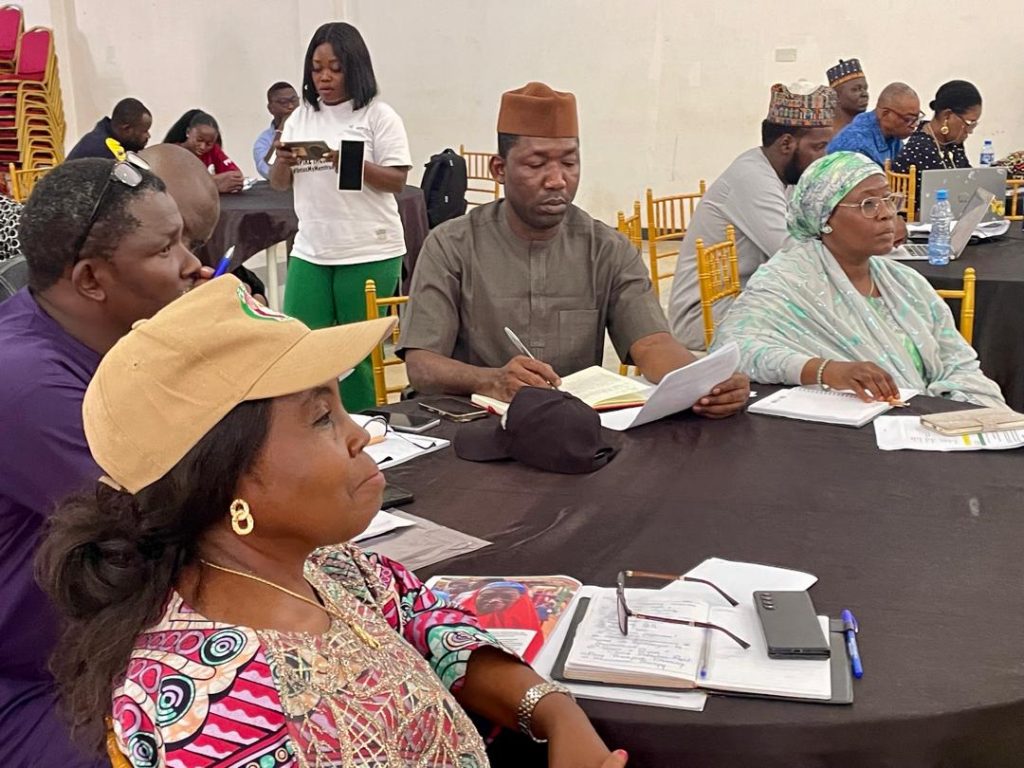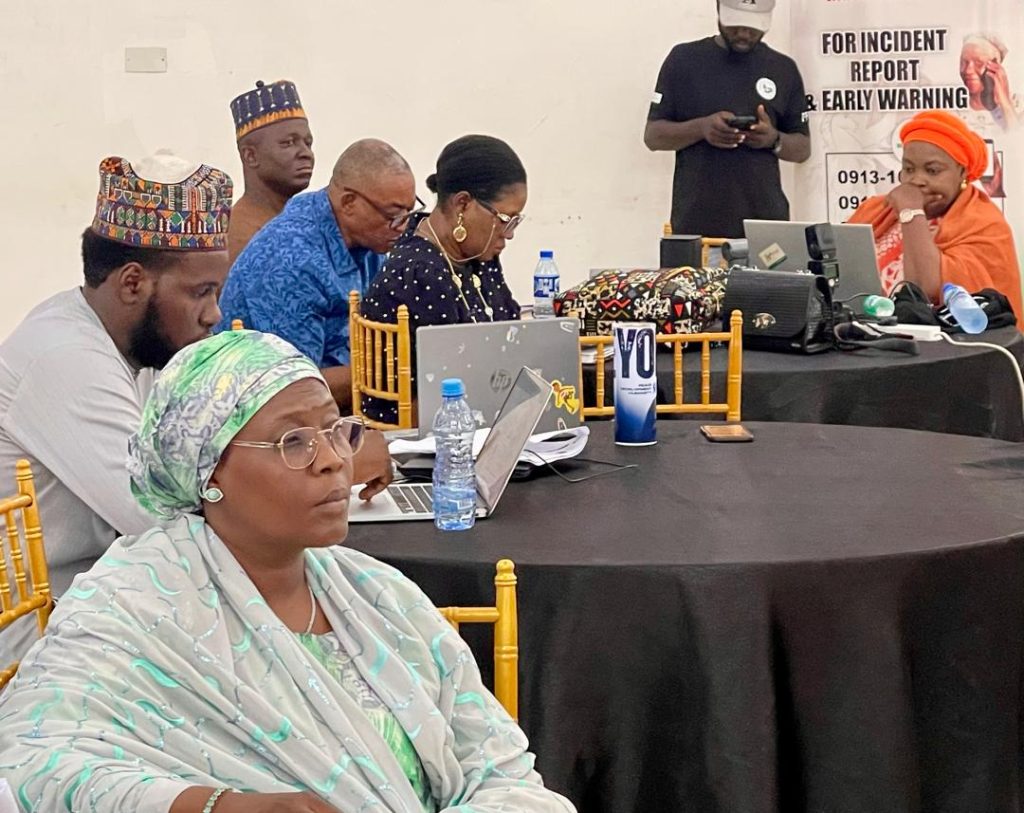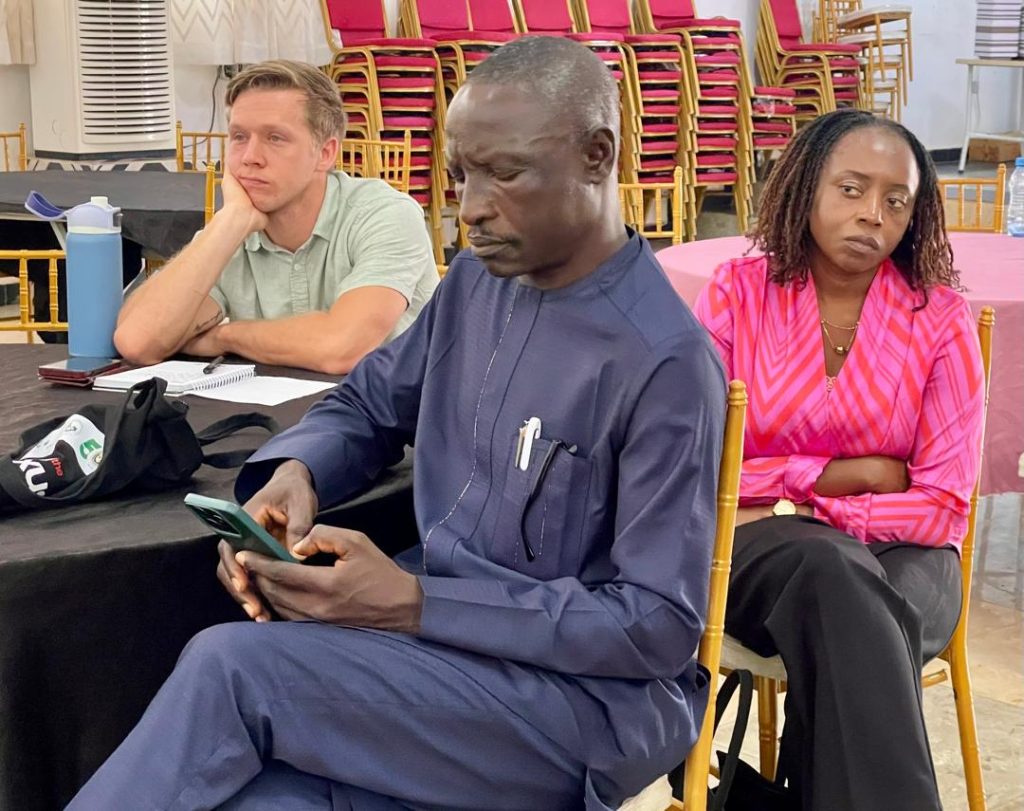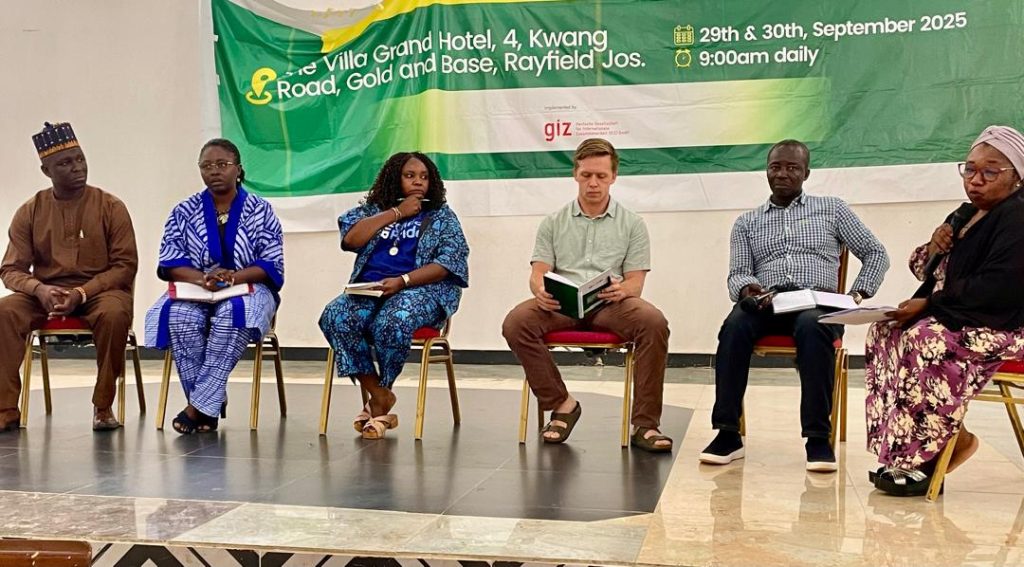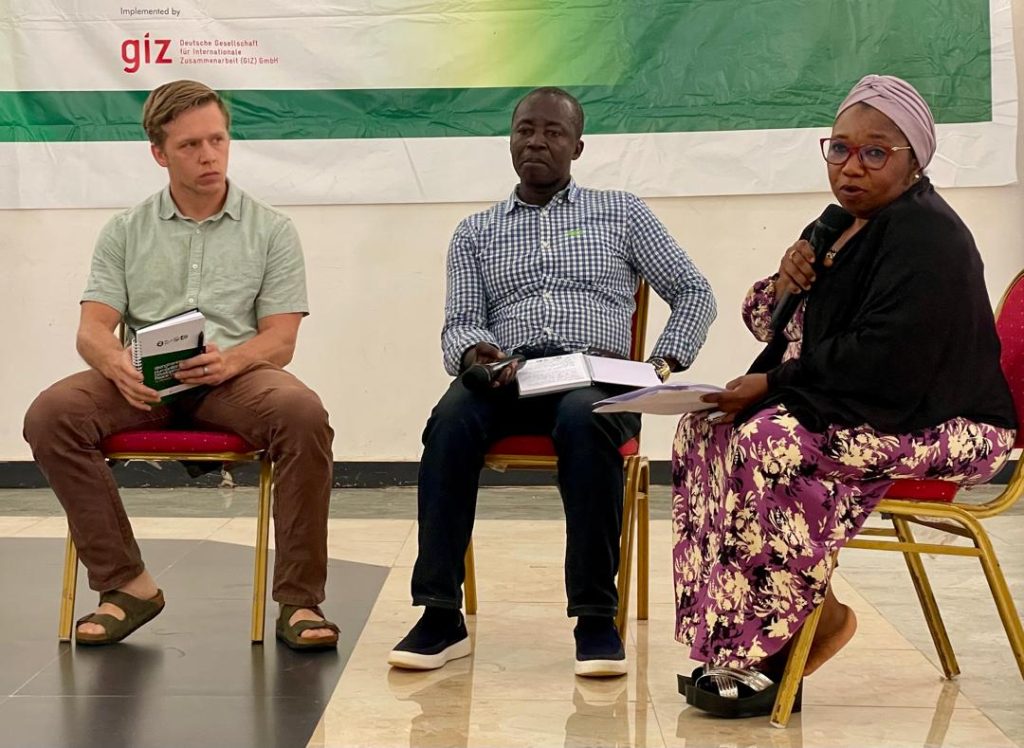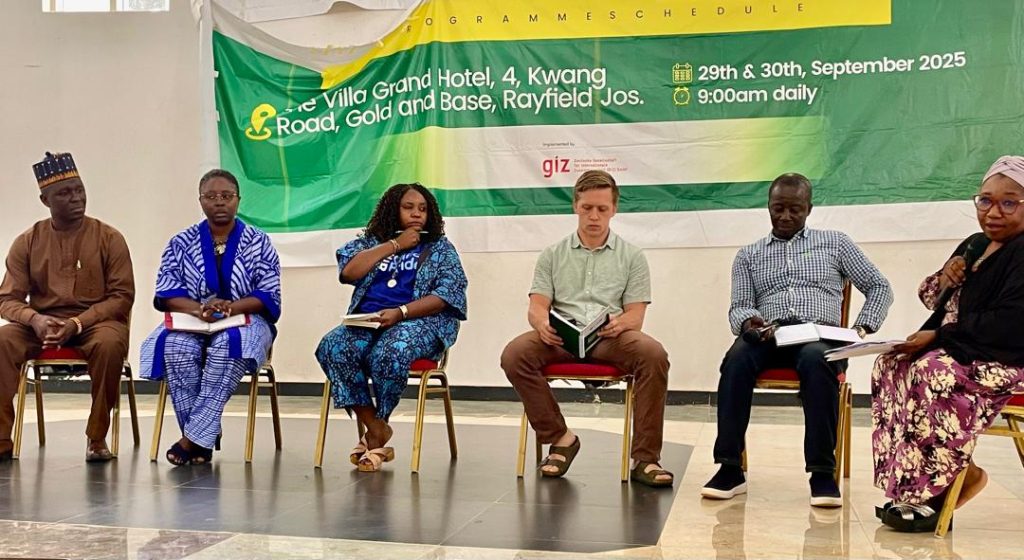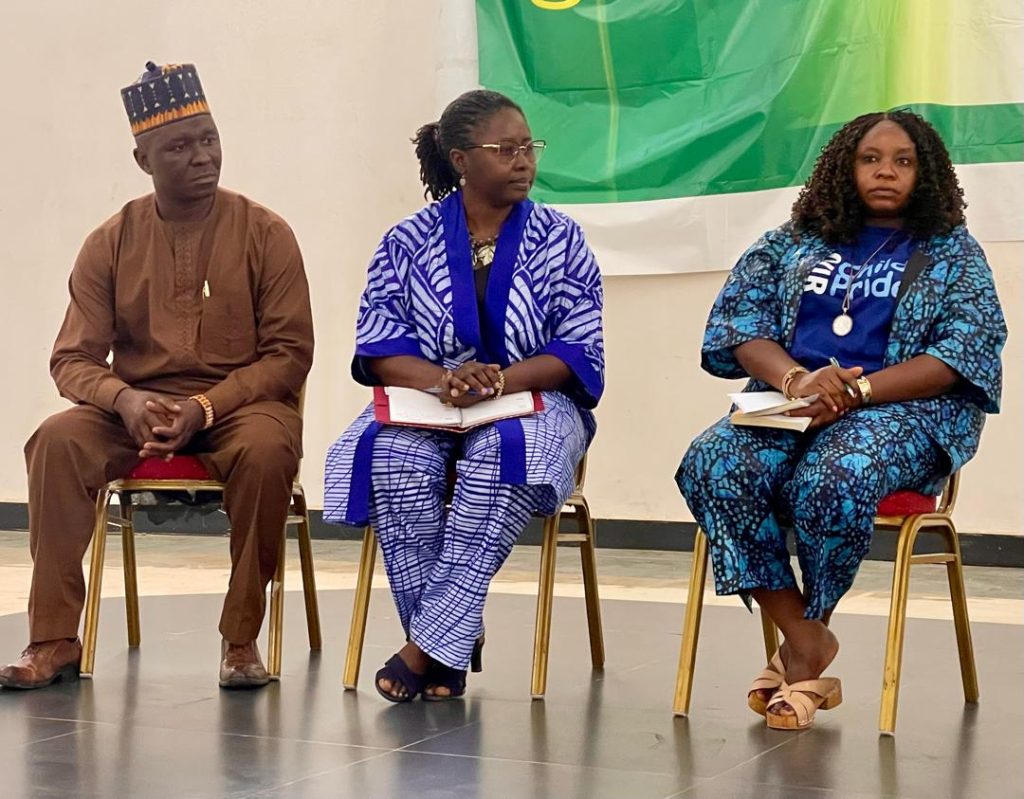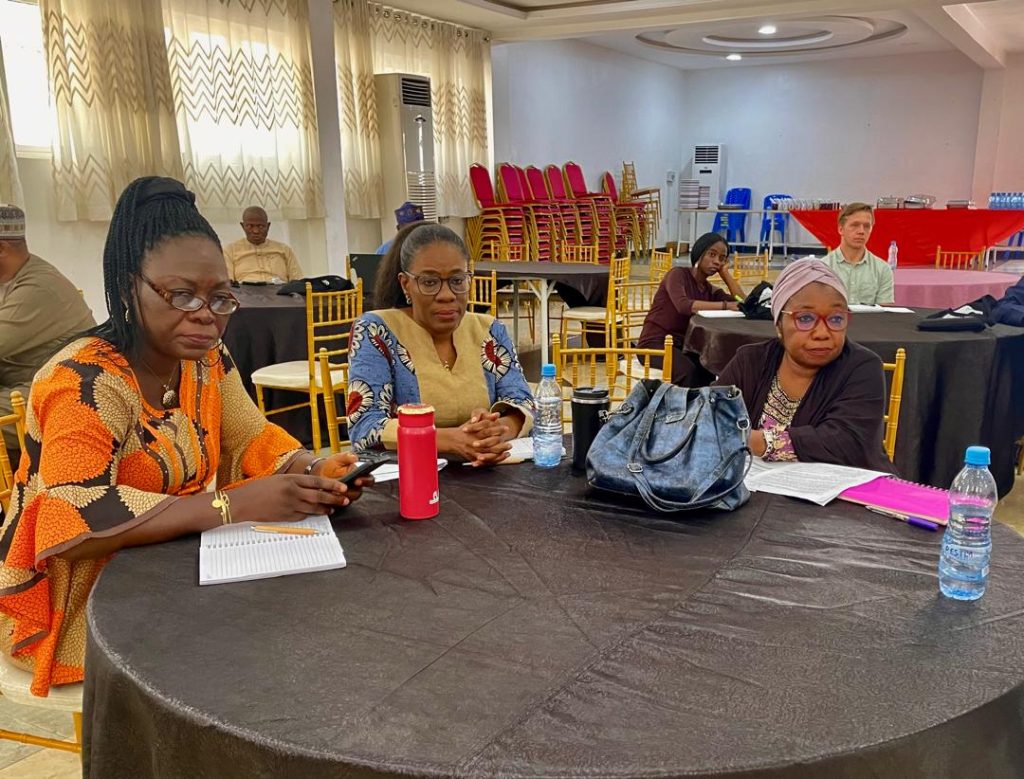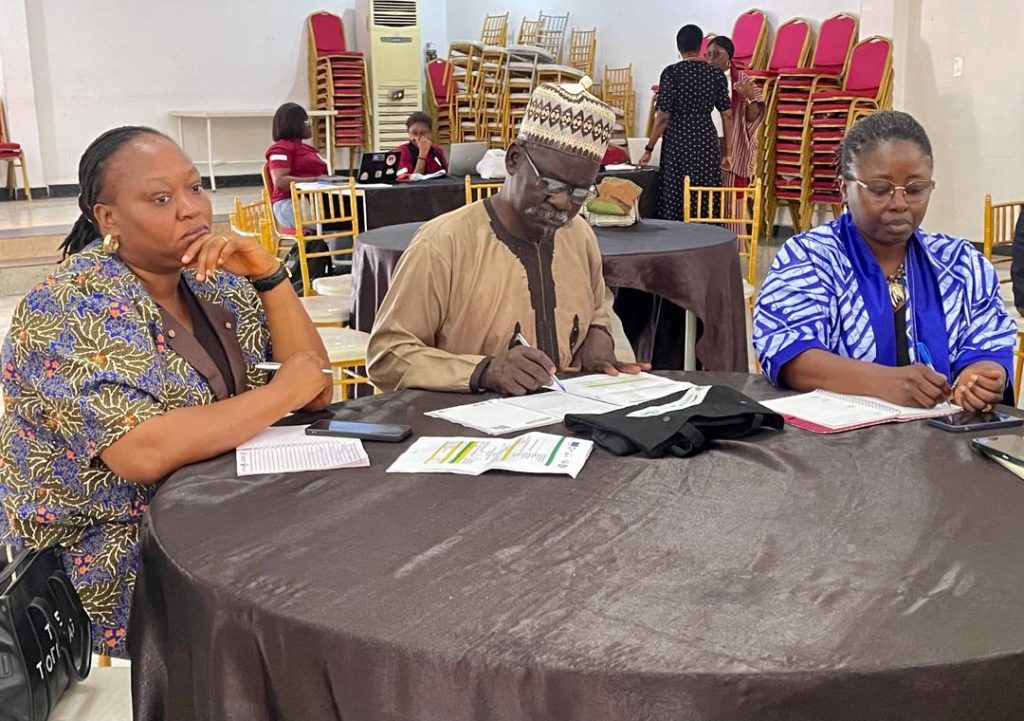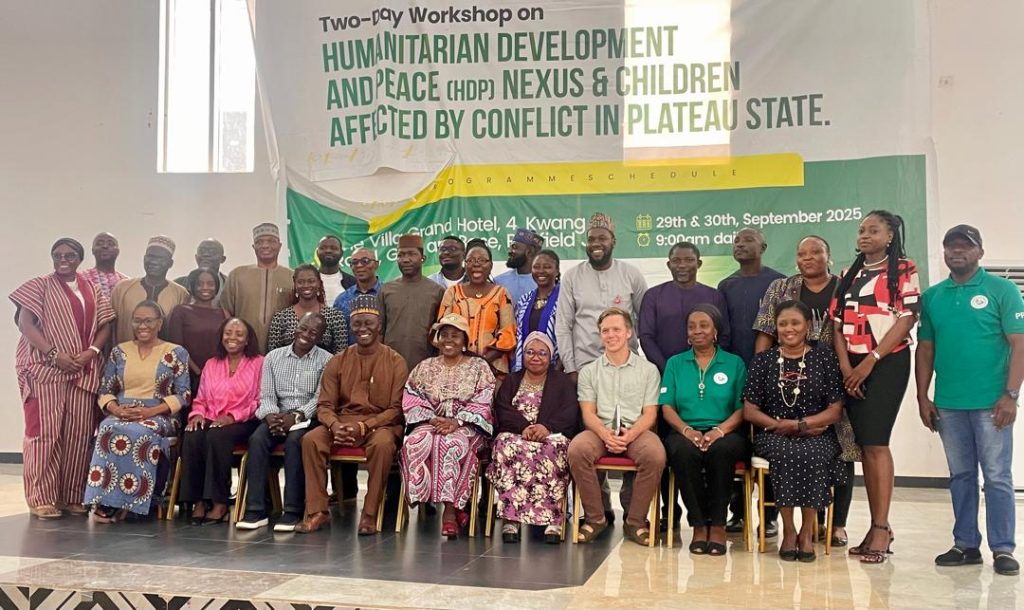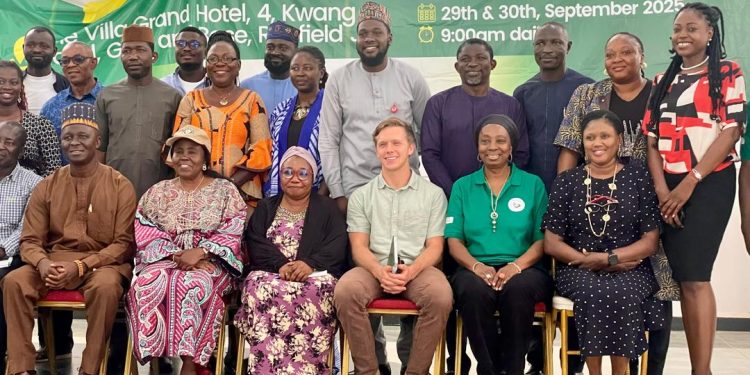Jos, Plateau State – The Plateau Peace Building Agency (PPBA), with sponsorship and support from the Economic Community of West African States (ECOWAS), the European Union (EU), the German Development Cooperation (GIZ), and the Federal Ministry of Humanitarian Affairs, organized a two-day Workshop on the Humanitarian-Development-Peace (HDP) Nexus and Children Affected by Armed Conflict. The event, which ended on September 30, 2025, at Villa Grande Hotel, Jos, brought together government officials, civil society organizations, and experts to explore trauma healing, psychosocial support, and sustainable recovery for children affected by violence.
The second day of the workshop featured a thought-provoking panel session led by psychologists, therapists, child protection advocates, and field officers who shared practical strategies to address the deep psychological scars of conflict. Moderated by Dr. Fatima Suleiman, the session encouraged interactive dialogue with participants, focusing on tools and approaches to rebuild the emotional stability of vulnerable children.
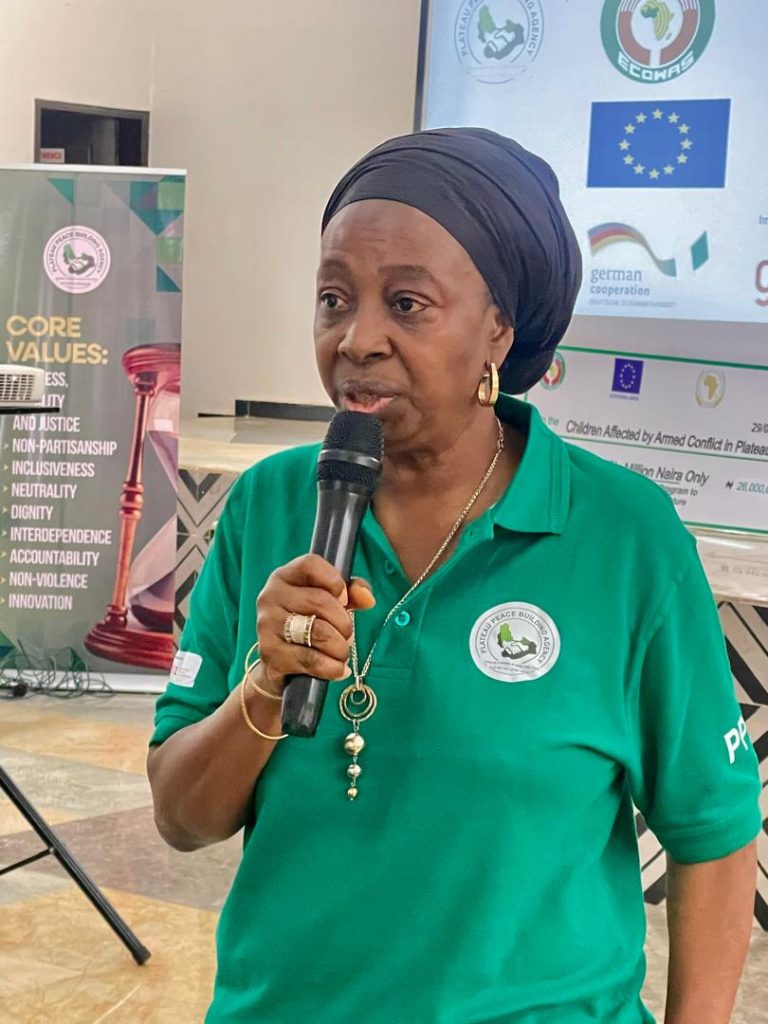
Speaking at the event, Dr. Julie G. Sanda, Director General of the PPBA, described the workshop as a landmark achievement, noting it was the first of its kind in Nigeria. She stressed that hosting ECOWAS at a subnational level was unprecedented, requiring authorization from the Federal Ministry of Humanitarian Affairs and the Ministry of Foreign Affairs. Dr. Sanda explained that the workshop demonstrates the importance of integrating humanitarian response, development, and peacebuilding, which are often pursued separately. She said the PSPBA has established a coordination team to deepen collaboration with GIZ, ECOWAS, and other partners. “This workshop shows that collaboration across government and civil society is the key to peacebuilding, and our priority is to expand focus on vulnerable groups, especially children affected by conflict,” she said.
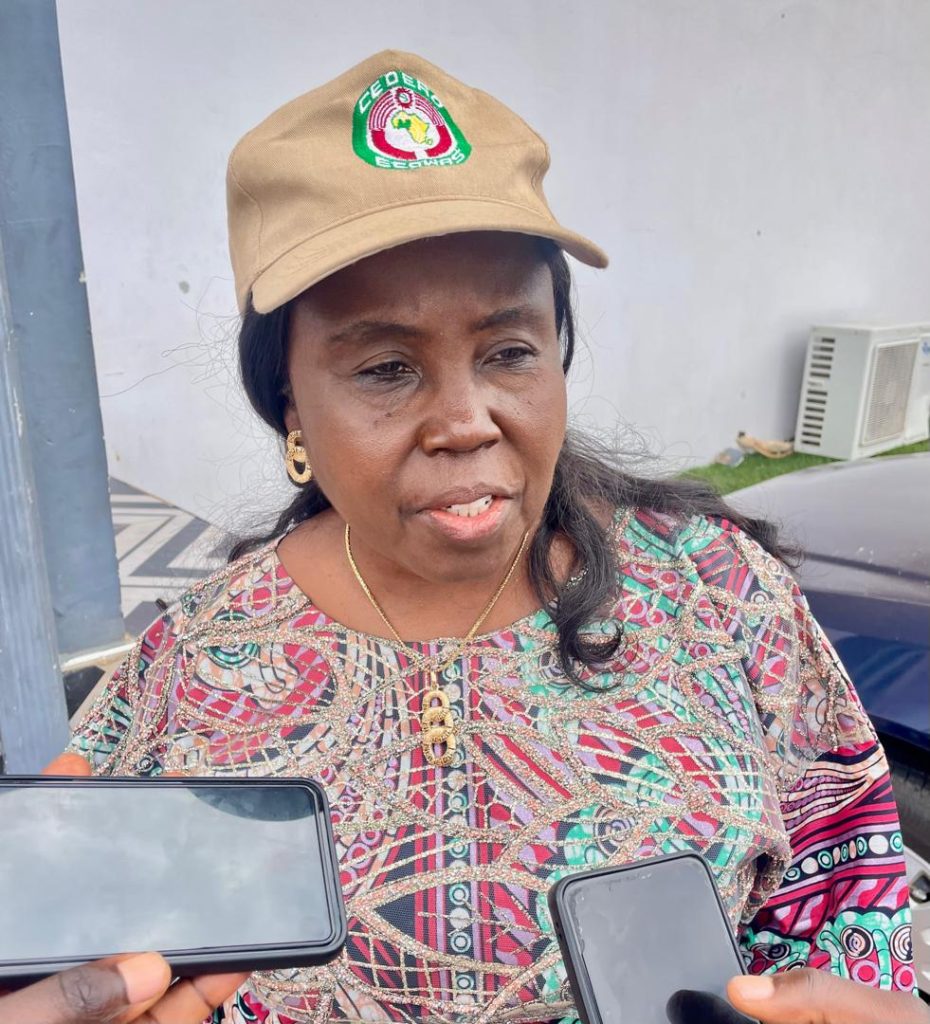
In her remarks, Dr. Sintiki Tarfa Ugbe, Director of Humanitarian and Social Affairs at the ECOWAS Commission, reaffirmed the organization’s support for Plateau under ECOWAS Vision 2050 for peace and prosperity. She acknowledged the resilience of Plateau communities despite years of recurring conflict and emphasized that peace cannot succeed without addressing food, education, healthcare, and psychosocial needs. Dr. Ugbe further revealed ECOWAS’ commitment of ₦26 million for education and psychosocial programs for children “Peacebuilding cannot succeed if basic needs remain unmet. Our support is designed to restore hope, dignity, and resilience among Plateau’s most vulnerable communities,” she stated.
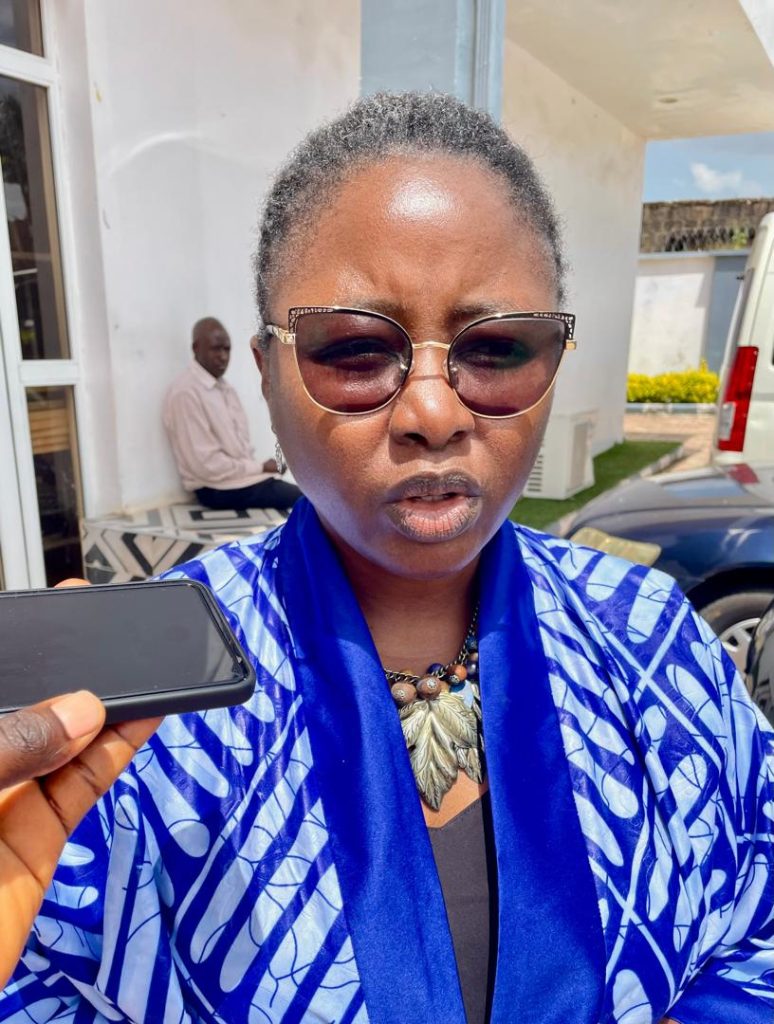
Lami Gidado, President of the Association of Play Therapy in Nigeria, emphasized the need for early intervention to prevent long-term trauma in children. She explained that play therapy offers children an outlet to process their experiences and heal, just as adults rely on conversation. “Even infants can carry trauma. Early recognition and treatment are critical, and play therapy ensures children are seen, heard, and supported in their healing journey,” Gidado said.
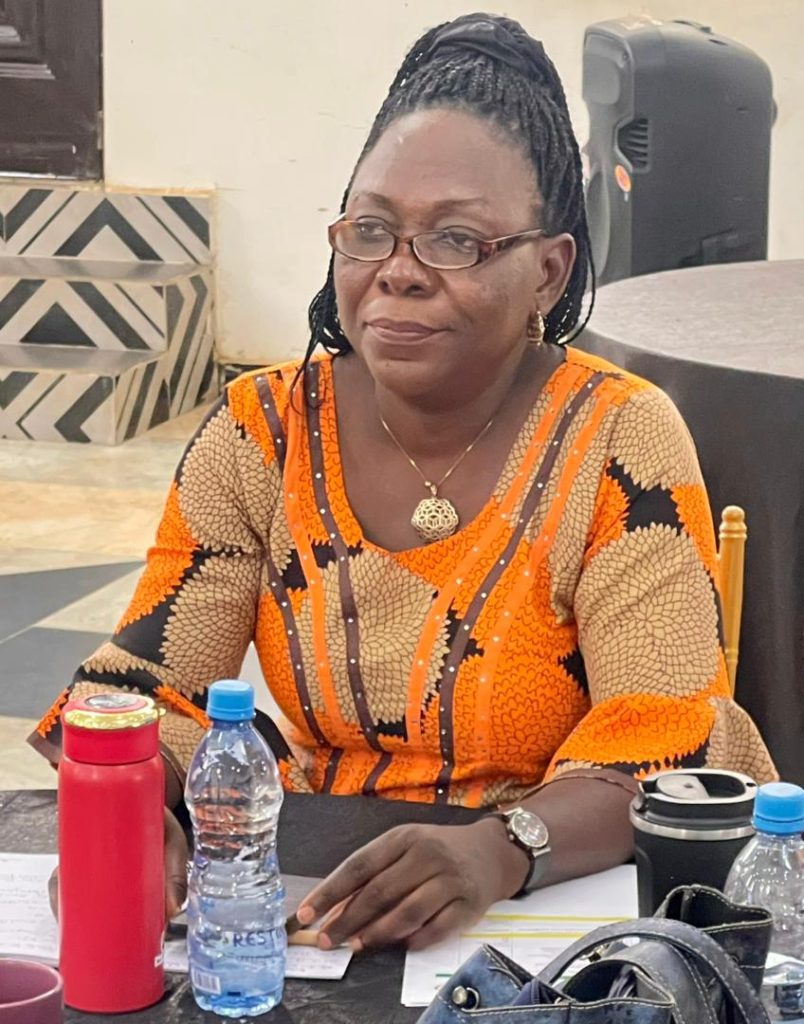
For her part, Nene Dung, Director of Media at the Plateau State Gender and Equal Opportunities Commission, highlighted the importance of collaboration in addressing the plight of displaced children. She urged that beyond data collection, urgent relief and safe housing should be prioritized. “We must work together to provide structured care and safe spaces for displaced children. This is the only way to restore dignity and stability to affected communities,” she stressed.
The workshop concluded with stakeholders reaffirming their collective commitment to integrate humanitarian aid, development programs, and peacebuilding efforts into one holistic framework. Participants agreed that prioritizing children’s needs, strengthening partnerships, and scaling psychosocial support are crucial steps toward sustainable peace and recovery in Plateau State.
